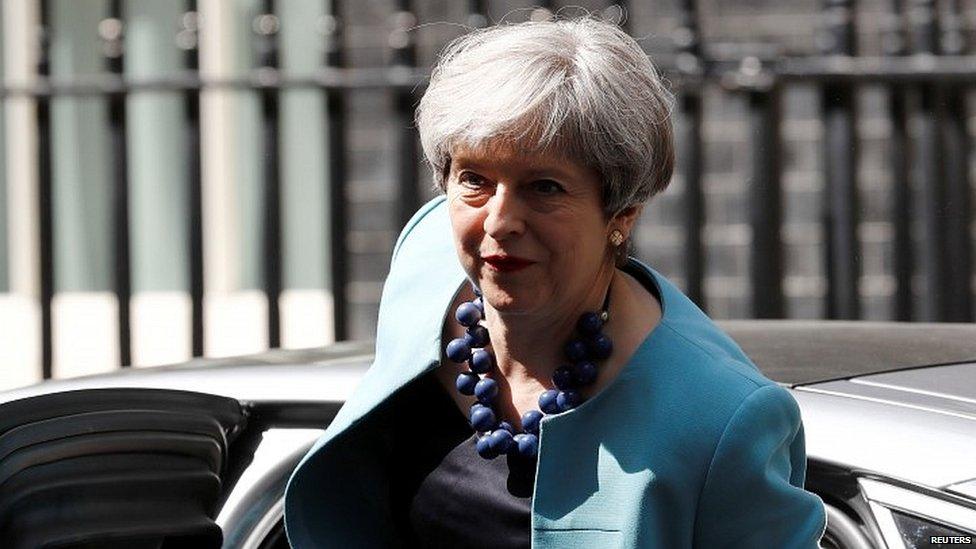David Davis blames 'badly designed' campaign for Tory losses
- Published
- comments
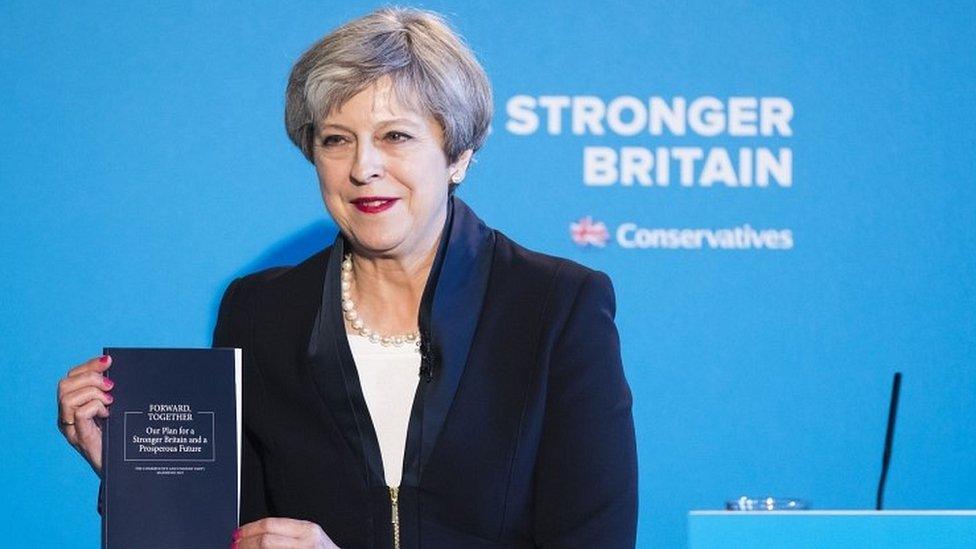
Brexit Secretary David Davis has blamed the Tories' general election losses on a "badly designed" campaign and Theresa May's social care "U-turn".
Mr Davis helped persuade Mrs May to call a "snap election" to strengthen his hand in Brexit talks.
But he now says the party did not have enough time to prepare "and some very significant mistakes were made".
It comes after ex-Tory chairman Grant Shapps called the party's manifesto the "worst in the world".
Speaking to an audience of business leaders in London, Mr Davis said: "What went wrong was a badly designed campaign in a nutshell," adding both the party's lead and Mrs May's own personal lead in the polls had been "undermined by a set of relatively simple mistakes".
He said parties normally have several years to prepare for an election campaign but it was "collapsed into a couple of weeks and some very significant mistakes were made".
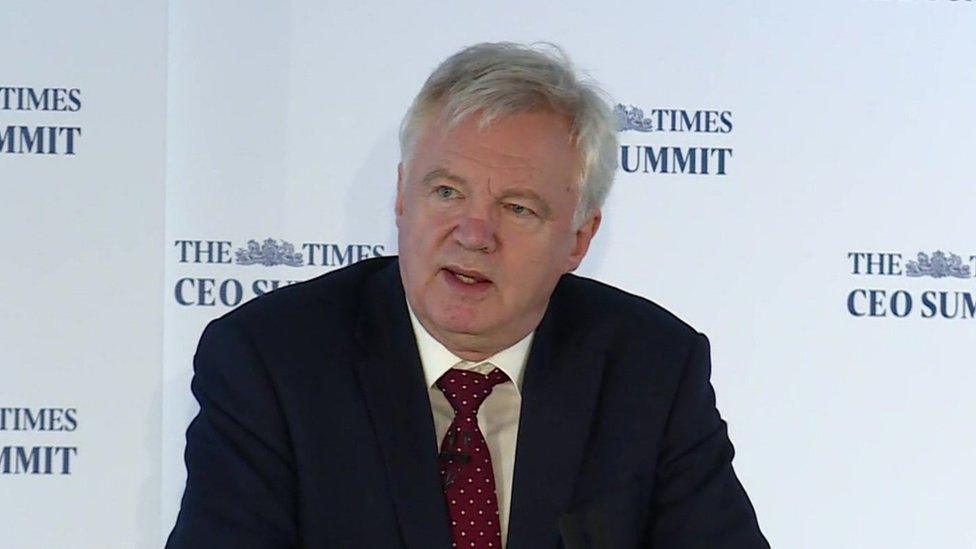
The Brexit secretary was one of those to urge the PM to go to the polls
Mr Davis singled out "the social care proposals, which pretty much switched off a very large Tory vote in the elderly sector" as well as "the proposals on doing away with free school meals for certain categories of children" which, he said, "hit another Tory vote sector in the sort of middle age group".
That, he said, had "knocked the whole campaign off balance and forced us into a U-turn which, in turn, undermined her (Theresa May's) standing, and the rest is history".
Mr Davis also praised Labour for managing to "galvanise a left-of-centre youth vote" in "a phenomenal way" using a "ferocious and powerful" social media campaign. And he argued that Lib Dem, Green and UKIP voters had switched to Labour in a return to two-party politics.
'Good idea'
He also suggested the terror attacks that occurred during the campaign, in Manchester and London, had taken "huge chunks out of what would otherwise have been a very long campaign" and meant the party's plans to talk about Brexit and the economy had to be shelved.
Asked by Andrew Marr on Sunday if he had advised Mrs May to call a snap election, Mr Davis said: "Yep. I take my share of the blame. Along with the other 20 members of the cabinet who also said it was a good idea."
Grant Shapps tells Today Conservatives lost seats because their manifesto was "appalling"
Former Conservative Party chairman Grant Shapps earlier rejected claims voters had turned against the Tories because they were "fed up" with austerity.
Instead, in an interview with BBC Radio 4's Today programme, he blamed the party's "crazy policies", describing Mrs May's manifesto as "a long list of punishments for the public and our core supporters".
"We were 20 points ahead and suddenly, in the space of two or three weeks. we lost that. And that wasn't down to people suddenly changing their minds on austerity, which none of us have ever liked.
"It was because we had forgotten the lessons of previous election campaigns," said Mr Shapps, who was Tory chairman between 2012 and 2015.
'Unnecessary election'
He said the party "forgot to build a team of activists" on the ground and should have put one person in charge of the campaign - but he reserved the most scorn for his party's "appalling manifesto".
If the party had not proposed policies such as ending the winter fuel allowance for better off pensioners and ending the guarantee that the state pension would rise by at least 2.5% a year - plus its social care reforms swiftly categorised as a dementia tax and "raising the spectre of fox hunting as an issue... then we would have a majority today", said the former minister.
"We had an unnecessary election and, actually, the world's worst manifesto from the world's oldest political party," he added.
He refused to be drawn on Mrs May's future but said he was speaking out now to ensure the party did not learn wrong lessons from the election result, which saw Mrs May lose her Commons majority.
If it repeated the mistakes it made in the run up to the 8 June polling day it "would never win an election again", he warned.
Chancellor Philip Hammond has highlighted growing "weariness" with austerity as a reason for the Conservatives' worse-than-expected results.
Labour leader Jeremy Corbyn described his party's boost in vote share and seats as "vote for hope for the future" and a sign people were "turning their backs on austerity".
- Published27 June 2017
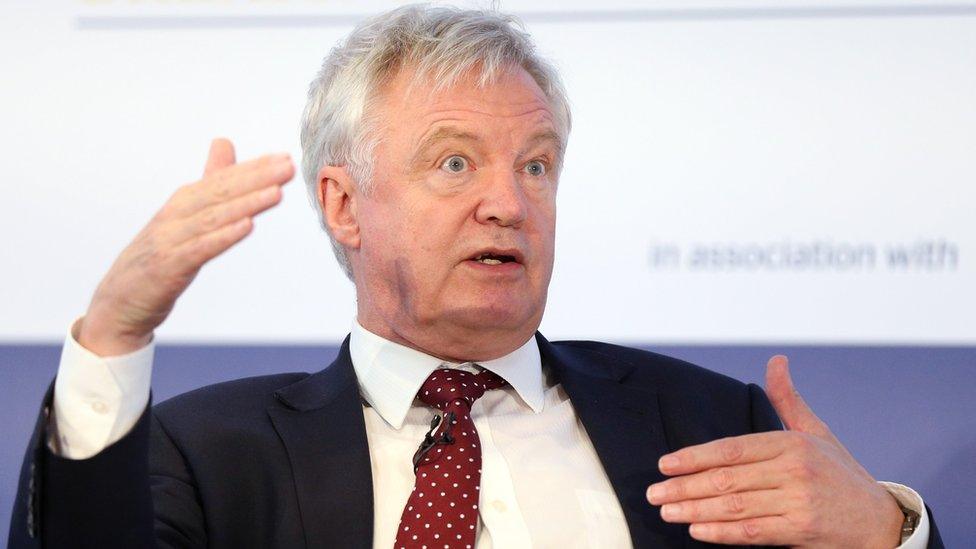
- Published26 June 2017
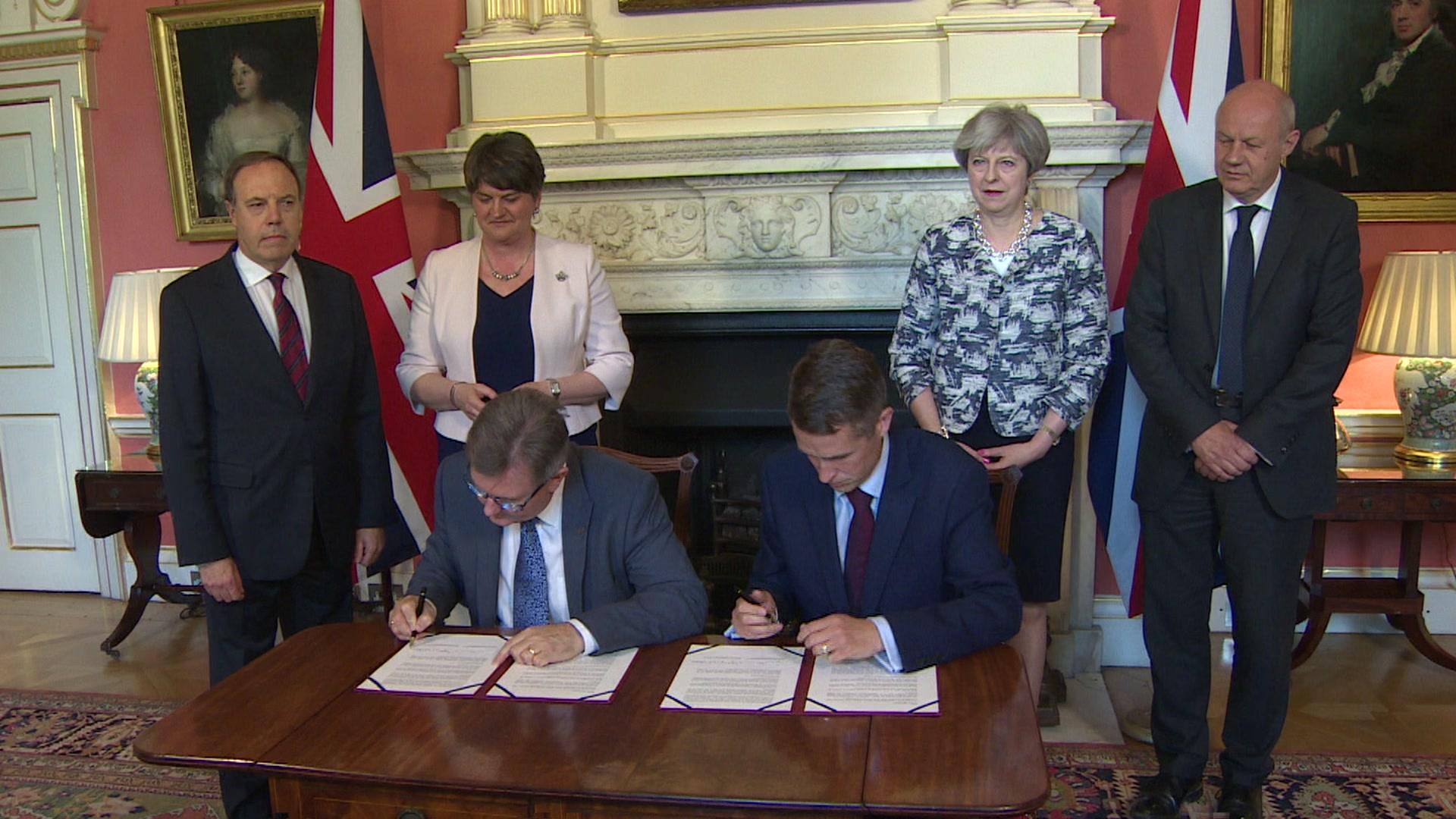
- Published26 June 2017
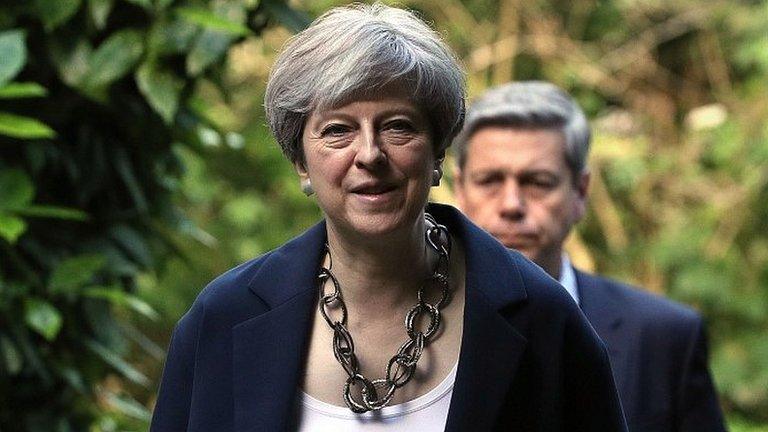
- Published14 June 2017
